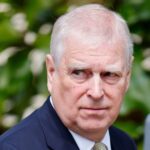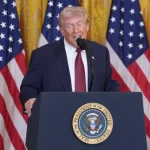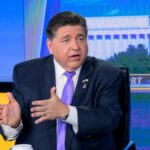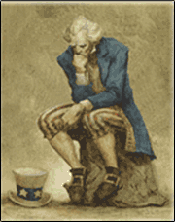
–>
December 9, 2022
That’s the origins of Venezuela’s name: “Little Venice.” And for you journalist mavens, here’s your quick quiz of the week. Who is the most famous man in Venezuela or her history? A. Nicolás Maduro, B. Hugo Chávez, C. Simón Bolívar, D. Fidel Castro. Any choice but Simón Bolívar is wrong, really wrong. Go get a good book on Latin American history. Try A New History of Modern Latin America from University of California Press. It’s surprisingly good, and I know some of the authors. They would appreciate your interest.
‘); googletag.cmd.push(function () { googletag.display(‘div-gpt-ad-1609268089992-0’); }); }
Venezuela is in the news this past month. In fact, it has been in the news for a few years now, since Hugo Chávez came to power in the late 1990s with a nationalist, socialist agenda. Chávez swept away much of Venezuela’s wealth in an explosion of populist socialism whose legacy is a nearly bankrupt nation today. Chávez died of cancer in 2013, and his old chauffeur, Nicolás Maduro, succeeded his chief and continued his march to communism.
Venezuela was one of the world’s major oil exporters and an old ally of the U.S. during the Cold War. In a kind of odd event, a presidential election was held in 2018, and Maduro declared himself the winner. Then Juan Guaidó, who was president of the National Assembly, declared himself president because the election was fraudulent. The incumbent Maduro said, basically, “Nuts to him, he’s just a flunky for old American imperialism, and I’m still president,” and we’re off to the races.
President Trump recognized Guaidó’s government, and so have all the major Latin American republics with a few exceptions like Cuba, Bolivia, and Mexico. Russia and China support the socialist Maduro. Diplomats have been expelled, and the macho leaders in both the U. S. and Venezuela are slinging insults and threats at one another.
‘); googletag.cmd.push(function () { googletag.display(‘div-gpt-ad-1609270365559-0’); }); }
So what’s in it for the U.S.? At stake is basically the political organization and future of the American states, or all the countries in the Western Hemisphere. We support democracy and republics, free and independent institutions, the power of the vote, free enterprise, and a government that truly encompasses all of the needs of all of the people. Add individual rights, marketplace competition, freedom of speech, the rule of law — all included in a Constitution that guarantees most of the above, especially the rights of individuals, kind of like a bill of rights. And there you have it. That’s what we support — not a socialist dictatorship like the one presided over today by Maduro.
Venezuelans have much admired the U.S. over the years. Venezuela declared its independence from Spain on July 5, 1811. They recognized the one passed on July 4, 1776 by the American colonists of North America as a historic document promoting the autonomy and freedom of the old English colonies. Venezuelans wished to emulate it as much of it as possible, including the date, but they missed it by a day. They fought a long and hard war against the Spanish, who had governed the land and people for almost three hundred years, and emerged as a republic, just as had the American colonists to the north.
The similarities between the two countries include two leaders of immense stature and vision: George Washington in the north and Simón Bolívar in the south. Bolívar not only commanded the armies that freed his fellow Venezuelans from Spanish dominion, but also led Colombia, Ecuador, Peru, and Bolivia to independence. I’m not sure if we’ve banished George Washington these days as a sexist, racist, misogynist, slave-holding hypocrite, but in Venezuela, they still revere Bolívar.
My first trip to Venezuela was in the late 1970s, when the country was riding an oil boom. I was invited to a week-long historical conference and read a dull paper on something like the Spanish maritime empire of the colonial period. But the high point of my visit proved to be a party given by the powerful Mendoza family.
“You going to Venezuela, eh?” my father chatted as we talked over the phone about the trip. “Well, call up the Mendozas when you get there. We built a paper mill together and have some other joint projects. They’ll remember the old man.”
So, I called one of the Mendozas when I got to Caracas, and sure enough: “Harold Clayton’s son? Wonderful. We’re having a party Friday. Come on!”
‘); googletag.cmd.push(function () { googletag.display(‘div-gpt-ad-1609268078422-0’); }); } if (publir_show_ads) { document.write(“
I arrived at the party, an immense and splendid home in one of the upscale suburbs of the capital, and was welcomed like a son. My dad had worked for W.R. Grace & Co. his whole life and had built paper mills all over the world using bagasse as the raw material, and the Mendozas and Grace had jointly built one in the country.
Well, it was fun fraternizing with the rich and powerful, and I remember their warmth and candor.
Venezuela had a relatively small but powerful and rich elite and a growing middle class sharing in the expanding economy, but, as most of Latin America, probably a third or more of the nation still lived poorly.
I had seen where one of their political slogans was “sembrar el petróleo,” or “seed the petroleum,” to modernize the country and spread the wealth and opportunities for all people more equitably.
It seemed to me that the slogan was just that, and nothing more. Oil revenues were still driving the economy. While some increased industrialization and development was occurring (like paper mills), I did not sense a massive, for example, import substitution development going on, like building cars in Venezuela instead of importing them with easy oil incomes.
“Yes, I know what you are saying,” one of the Mendozas I chatted with admitted. “It is easier to hop on a plane and go to Miami to buy what we want in your markets, or just order new televisions and computers built in Japan or the United States or Europe than to build them here. And they’re usually a lot better built in the U.S. or Japan than here!”
He was right. I discovered later that Volkswagen, for example, had plants in Brazil, Mexico, and Venezuela. Anyone who knew anything about cars and couldn’t get a German- or Mexican-built bug wanted one from Brazil. Those built in Venezuela were dogs. I have no idea if this vehicle evaluation is true or not, but that was the perception, and perceptions are often more important in driving opinions than truth.
I left my conversation with one of the nice Mendoza men at that and enjoyed my stay in Caracas. The Venezuelans have a long political history of social and Christian democratic party rule, interrupted by some dictators who have not served the people well.
Today’s violence and discontent are reflective of the latest round of dictators — this time the Chávez-Maduro axis — who have imposed their personality and power at the expense of republican and democratic values. The old property and oil-producing elites — working largely with U.S. corporations, one must add — bear a lot of responsibility for not truly “seeding the oil.” Today, Venezuelans have long pull ahead to recover their democracy and their prosperity.
The Chávez-Maduro axis style their leaders as “Bolivarian” leaders, but it is easy to wrap yourself in the flag of ultranationalism. Neither Maduro nor Chávez before he died resembled in behavior or political wisdom Venezuela’s great liberator, Simón Bolívar, who led five countries to independence in the early nineteenth century.
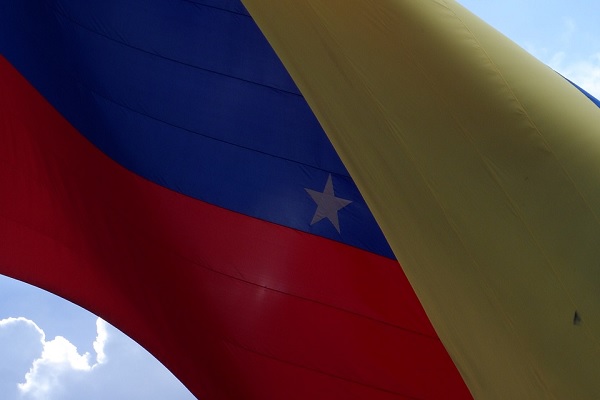
Image via Max Pixel.
<!– if(page_width_onload <= 479) { document.write("
“); googletag.cmd.push(function() { googletag.display(‘div-gpt-ad-1345489840937-4’); }); } –> If you experience technical problems, please write to [email protected]
FOLLOW US ON
<!–
–>
<!– _qoptions={ qacct:”p-9bKF-NgTuSFM6″ }; ![]() –> <!—-> <!– var addthis_share = { email_template: “new_template” } –>
–> <!—-> <!– var addthis_share = { email_template: “new_template” } –>


